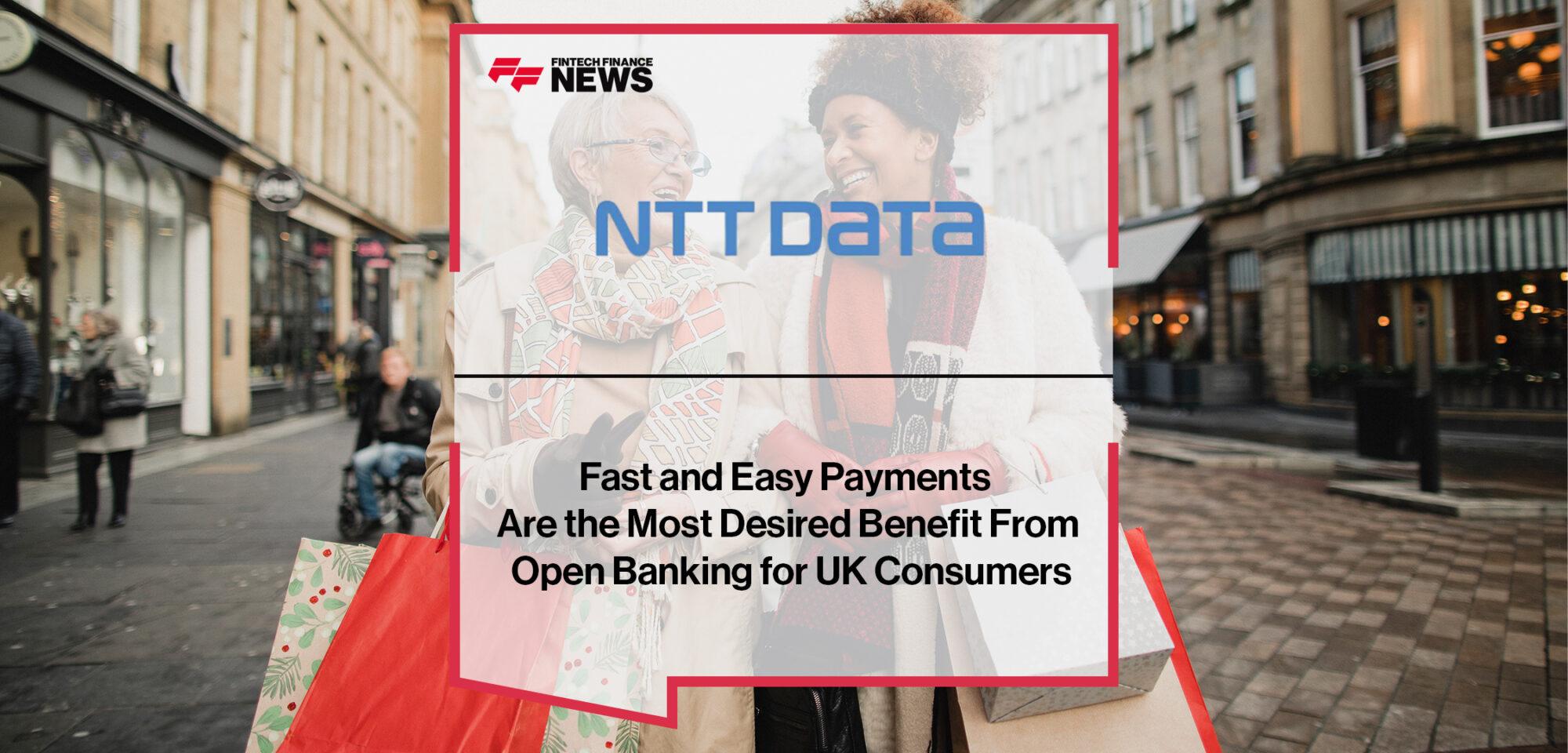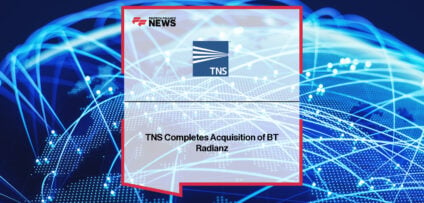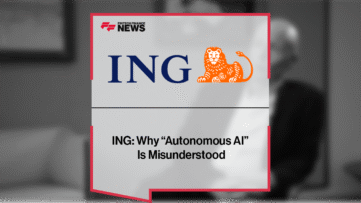Breaking News

Fast and Easy Payments Are the Most Desired Benefit From Open Banking for UK Consumers
The Bank of England and HM Treasury’s latest update on the digital pound signals a significant step for British banking customers, mapping out a future where transactions could operate in completely new ways thanks to digital wallets and automation. At this time of significant change, new research from NTT DATA UK&I has found that transactions and payments are the key area where consumers see the most value from Open Banking.
Conducted on a representative sample of UK consumers, the research found that the perceived top benefit of Open Banking is that it can speed up financial transactions and services, with over half of consumers (53 per cent) agreeing with this statement. This benefit was far ahead of the other top benefits identified by consumers, ease of use (37 per cent) and making banking more straightforward (29 per cent). Security is another area where consumers see the potential of Open Banking benefitting payments, with 31 per cent stating that it allowed for more secure payments to third parties.
Security is certainly an area where Open Banking has improved payments, even helping to address the growing fraud problem in the UK. Cifas reported that fraud rose by 17% in 2022 and predicts that it will rise again this year.[1] Open Banking can increase the security of the payments ecosystem by using watertight customer authentication and allowing customers to have more control over their data.
The critical factor in the positivity towards Open Banking and payments appears to be awareness and use of these benefits – as three quarters of consumers (74 per cent) currently make use of Open Banking to make payments to a third party. This marks a stark contrast to the other capabilities offered by Open Banking-powered technologies, such as managing finances (37 per cent), sharing financial data (24 per cent), and loans (21 per cent).
Additionally, there are areas where Open Banking is improving the payments ecosystem that were not recognised by consumers. For example, Open Banking allows for the creation of a new payment infrastructure as well as the introduction of overlay services that could open a new wave of payments innovation. It has also contributed to a growing push toward real-time payments, particularly in e-commerce and with international payments.
Moreover, in June of last year, research from The World Bank found that the COVID-19 pandemic had fuelled a spike in digital payments across the globe. Two-thirds of global banking customers have made or received a digital payment, signalling a digital revolution in the world of personal finance. Digital lending platforms are also on the rise year on year, as demonstrated by research conducted by Grand View Research. Open banking is supporting the increased demand for digital transactions and loans and consumers are becoming familiar with payments through applications and third parties.
Andy Nelson, Head of Banking and Financial Markets at NTT DATA UK&I commented on the research insights: “Payments are the area of banking that was perhaps changed most by the global pandemic. As the world of payments and transactions continues to evolve post-pandemic, consumers are rightly recognising the value of Open Banking in delivering a more personalised and stress-free banking experience. Ultimately, it’s always a positive sign if the capabilities of banking technologies and consumer expectations align, and I’m pleased to see that payments are an area where this is the case for Open Banking in the UK.
People In This Post
Companies In This Post
- YouLend and Intuit Team Up to Bring Embedded Capital to QuickBooks UK Customers Read more
- dLocal and Amway Partner to Strengthen Local Payments For Direct Selling Across Latin America Read more
- How Freedom Holding Corp Turned Technology Foundations into a Scalable Fintech Ecosystem | Freedom Holding Corp | The Fintech Show #161 Read more
- ComplyAdvantage Fintea Chats: Fighting Financial Crime in an Age of Faster, Smarter Criminals Read more
- ING: Why “Autonomous AI” Is Misunderstood Read more


















